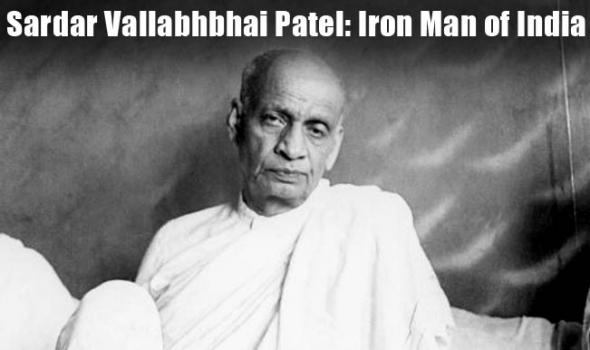
Sardar Patel : The Iron Man of India
An iron will and nerves of steel earned Sardar the title of Iron Man. The following anecdote, more than any other, throws light on why Patel was honoured with that unusual title. In the midst of his arguments in a court in Anand in 1909, Patel received a telegram informing him that his wife was no more. Putting away the telegram in his pocket and taking a few moments to collect himself, Patel nevertheless continued with the cross-examination of a key witness in the case. It was only after the proceedings of the day were completed that Patel revealed the bitter contents of the telegram to everybody's shock. Patel's client had been accused of a murder charge. He would not allow his own grief to come in the way of his client's life. His client was acquitted in the case. For this, his steely determination he has been referred also as a Volcano in Ice.
Iron Man Sardar Patel
Integrating hundreds of states with extraordinary diversity in langauge, religion and culture, to form a single united nation within a span of months was what seemed like an impossible task. Nowhere else in world history had such an event taken place. But Sardar Patel took charge of achieving the impossible. His work in integrating the states to form India is unprecedented and monumental. The modern nation state of India owes its geographic continuity and integrity to this great man's ingenuity and untiring efforts. The video provides a brief glimpse into the life of Sardar Patel and describes in brief his contribution in the Integration of India. It also contains the proposed plan of the Indian Government in constructing the Statue of Unity in his honour.
Unity is the need of the hour
'Hamara pratham kartavya hai Hindustan ki hifazat, Hindustan ki raksha' says Sardar Patel in this speech given by him on the occassion of Dusshera on 12 October 1947. Stressing upon the need of the hour, Patel speaks about why Indians need to remain united in the hour of reckoning. The young nation requires everyone to contribute jointly to build a strong and united India, he says. Leaving aside differences and disputes, he implores all Indians to join hands in the interest of the country's progress. This timeless message remains relevant even half a century later.
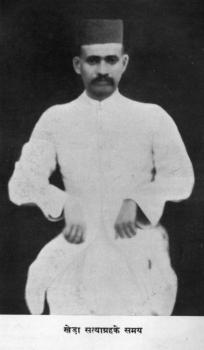
A life-changing decision
Despite initially dismissing Gandhi's methods, Patel was drawn to Gandhi. The successful barrister dressed in a western suit and speaking mainly English, did not envisage a life of satyagraha when he first encountered the Mahatma. But something began to churn within him after watching Gandhi closely.
Speaking of Vallabhbhai's decision to leave his practice and join the path of satyagraha, Gandhi said 'Vallabhbhai told himself "No doubt my practice is flourishing today. I am also doing something big in the municipality. But the struggle for the peasants in Kheda is bigger than that. My practice may or may not be there tomorrow. My money will be blown tomorrow; those who inherit my money will blow it. Let me leave them a higher legacy than money.'
Giving up his ambitions and dreams, Patel followed in the footsteps of the Mahatma nursing the cherished desire of freedom. 'I took to this life after mature consideration and not on the spur of the moment' he said of his decision. This decision altered no doubt his own life. But it altered also the destiny of the nation.
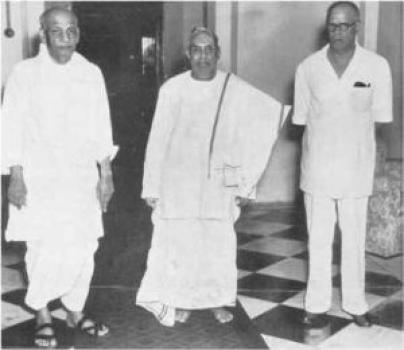
Sardar Patel and V.P. Menon : A Formidable Force
'Sardar Patel never interfered in my work. I did my job in the full knowledge that I had his authority to carry out his policy. He accepted my views on most matters; if he disagreed, he would tell me so. We would then discuss and argue the issue, and if I succeeded in convincing him of the correctness of my view he would readily accept it. I have never seen him swayed by considerations of prestige' said V.P. Menon speaking of his long association with Sardar Patel.
Patel was known to be an astute judge of people. Placing complete faith in his team, he had a great ability to delegate responsibility. So while he formulated policy and played an active part in negotiating with the rulers of Princely states, he trusted Menon and other Ministry officials in matters of implementation. Forming a formidable partnership, these two men managed to secure the accession of 565 princely states into the Union of India in record time. Never before in history had the task of Integration of a Nation been accomplished so swiftly and efficiently.
Here Sardar Patel and V. P. Menon are seen with the Maharaja of Cochin.
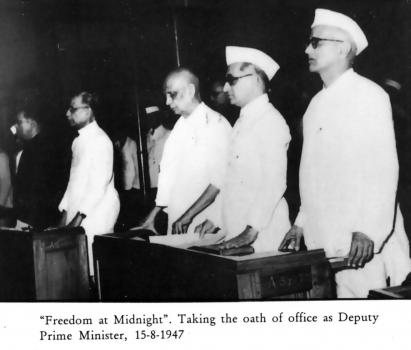
First Deputy Prime Minister of Free India
'I’m sure you will feel more proud to serve a government which is yours. The past is dead. Live in the present, and work for the generations to come. You have my full trust and confidence. Do not be afraid to give me your honest opinion even if I disagree with you. As Minister I am responsible for policy and if anything goes wrong in its implementation, I will take the blame. So long as you are carrying out that policy conscientiously, I will not interfere with your day-to-day work. We want to build a strong and prosperous India and I ask for your co-operation. Come and see me whenever you are in difficulty. I shall always be ready to help you.’ said Patel in his capacity as Deputy Prime Minister to those serving in the Civil Services.
In chalking out his plan toward building a strong nation, Patel had realised the importance of securing the goodwill and co-operation of the Civil Services. With old age, fatigue and illness drawing closer, Patel continued to remain, even when at the helm of affairs, always approachable.
This photograph shows Sardar Vallabhbhai Patel taking oath of office as the First Deputy Prime Minister of free India.
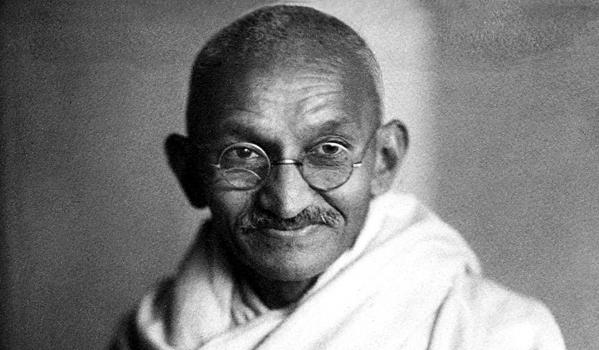
Gandhi chooses Vallabhbhai as his Deputy Commander
'A leader’s skill is judged by his competence in selecting his assistants. Many were prepared to follow me, but I could not make up my mind as to who should be my deputy commander. Then I thought of Vallabhbhai. I must admit that when If first met Vallabhbhai, I could not help wondering who this haughty person was, and whether he could be able to do what I wanted…if it were not for his assistance, this campaign could not have been carried through so successfully.' Thus said Gandhi speaking about Vallabhbhai Patel after the success of the Kheda peasant's movement, Vallabhbhai's first satyagraha in 1918.
'When it comes to obeying an order, there is no soldier like me.' said Patel speaking many years later about an instruction given by Gandhi. 'This is Vallabhbhai's soil. He has been through the fire but further tests await him. I have no doubt that in the end we shall find pure gold,' remarked Gandhi paying a fitting tribute to Patel at a peasants meeting in Vallabhbhai's village Karamsad during the satyagraha.
Meeting Gandhi, being entrusted as the second-in-command at Kheda by Gandhi and the continued association with Gandhi proved to be a turning point in Vallabhbhai's life.
Sardar : Pied Piper of the Princes
Sardar Patel took over the reins of the States Ministry a few months before India was to attain Freedom and began approaching rulers of the Princely States to accede to India. The rulers of several states followed his lead. This cartoon Image entitled 'They Toil' shows Sardar Patel as the Pied Piper followed by the rulers of various princely states who follow his leadership in acceding their state to India.
Sab Ek Samaan
'Koi Unch nahi, Koi Neech nahi. Sabhi Ek Samaan hai.' says Sardar Patel in this speech beseeching all Indians to come together to build a strong nation. There is no pure, no impure. No high nor low. We are all equal says Patel as he asks Hindus,Muslims, Parsis, Christians and Sikhs to unite as Indians leaving aside their differences. This speech urging the people of India to move toward national unity, continues to hold great value even half a century later.
-

Sardar Patel : The Iron Man of India
-

Iron Man Sardar Patel
-

Unity is the need of the hour
-

A life-changing decision
-

Sardar Patel and V.P. Menon : A Formidable Force
-

First Deputy Prime Minister of Free India
-

Gandhi chooses Vallabhbhai as his Deputy Commander
-

Sardar : Pied Piper of the Princes
-

Sab Ek Samaan